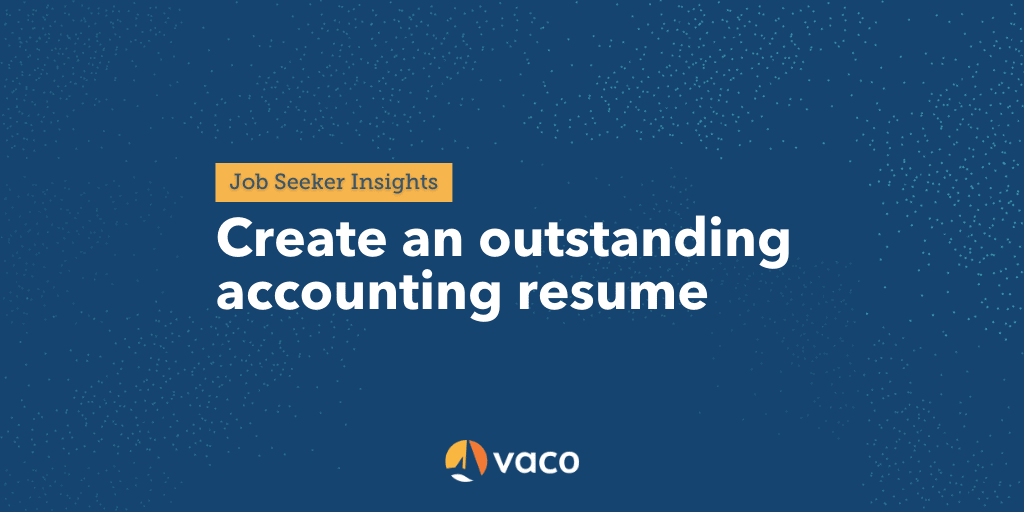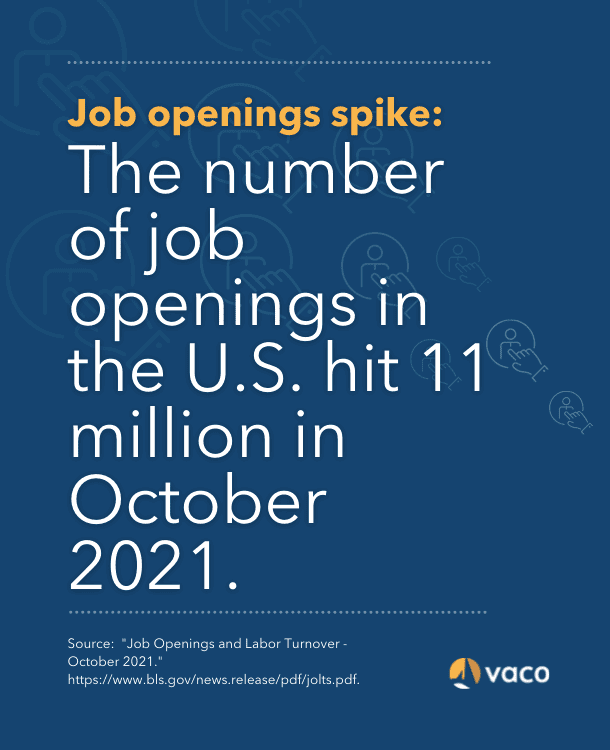It’s a well-known fact that in the current job market, the leverage lies with job seekers. Demand is high, and active candidates are scarce. As of November 2021, there were only 67 unemployed people for every 100 job openings, and voluntary resignations hit an all-time high.
While it’s true that job seekers have more bargaining power than ever, no job search is ever certain. If you’re in the market for a new professional opportunity, there are ways to position yourself at the top of the resume pile. This is especially important if you’re an accounting and finance professional.
Below, we’ve compiled our top tips for creating an outstanding accounting resume.
Clarify your accounting background
Your resume should clearly articulate your accounting background to potential employers, including the industries you’ve worked in, i.e., healthcare, manufacturing, financial services, retail, technology) and the types of companies you’ve worked for (private equity backed, publicly held or privately held).
Make sure any hiring manager who reads your resume can clearly see the specific areas of full-cycle accounting you have experience in, whether it’s month-end close, reconciliations, journal entries, financial statement preparation, financial reporting, consolidations, analysis, audit assistance or other areas. Many candidates opt to leave these specifics open to interpretation, but being specific can help solidify your experience for hiring managers.
Finally, include specific systems and technical software skills you have, including Excel (v-lookups, pivot tables, etc.), SAP, Oracle, NetSuite, Intacct, etc. You should also note any implementation experience you have.
Read more: Check out our tips for writing an amazing cover letter.
Explain your work experience
Be transparent with the names of your previous employers, job titles, and dates of employment (month and year preferred). Make sure they are listed in reverse chronological order, and in the interest of resume length, be the most detailed with responsibilities and accomplishments over the previous ten to fifteen years.
Prioritize your most relevant and notable accomplishments by listing them first in each section; you don’t want your achievements to get buried in your resume and be overlooked.
Finally, don’t be afraid to highlight any honors, awards, leadership positions or commendations you’ve received. You may have the same background and experience as another candidate, but you can differentiate yourself by emphasizing your unique accomplishments.
Discuss your holistic work history
Highlight any experience you have outside of traditional day-to-day accounting such as acquisitions, integrations, or other special projects.
If you have supervisory or management experience, make sure you include it, whether it’s in an official capacity, like hiring and/or managing, or an unofficial one, like training or occasionally reviewing.
If you’re an entry-level accountant, place special attention on your education section; include any awards, recognition, internships or relevant experiences from your accounting program. Don’t be afraid to highlight the technical expertise you acquired during your time as a student. This can help demonstrate your expertise in important accounting and finance tasks, even if you don’t have experience in the workforce.
Pay attention to detail & formatting
Ensure consistency in your resume’s formatting and appearance. Carefully check your font, margins, and spacing; make sure you organize your responsibilities, achievements and technical skills with bullet points instead of paragraphs. Bullet points help break up chunks of text and make it much easier to highlight your most relevant experience and proficiencies.
In addition, have a friend or colleague review your resume before you send it out—this will help you catch any last-minute spelling errors, typos or grammar mistakes. It can be difficult to spot errors when you’ve been staring at the same text for hours, but a fresh pair of eyes can ensure nothing slips through the cracks.
Finally, be sure to review your resume language for consistency in tenses (past vs. present); make sure all previous positions and job descriptions are spoken of in the past tense, and use present tense when discussing current professional responsibilities.
Your resume is your first (and maybe your only) opportunity to get your foot in the door when a perfect finance or accounting position opens up. Make it relevant, clean, and concise, and make sure it showcases the qualities, experiences and skills that make you a great candidate.
If you need additional help building your accounting resume, download our Resume Template today.
Learn more about Kaylee Osland of Vaco in Nashville.


